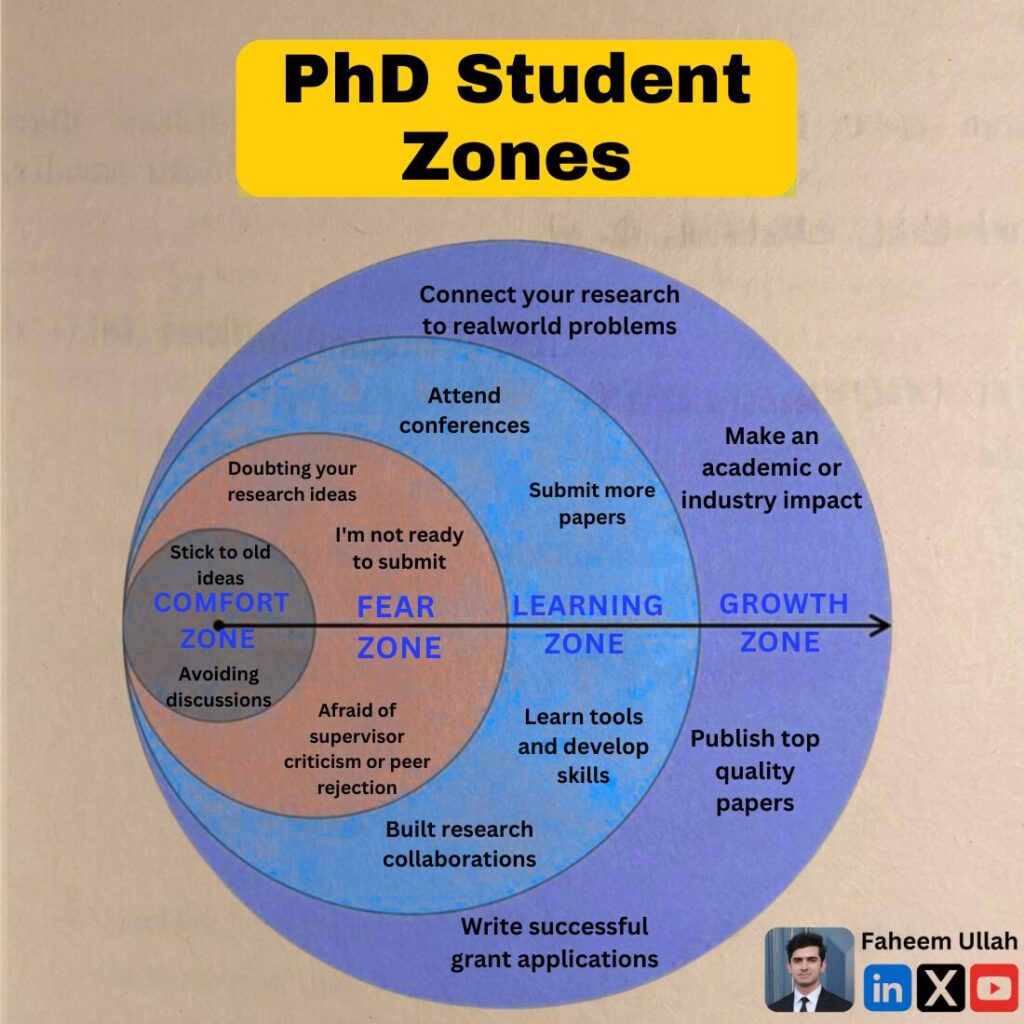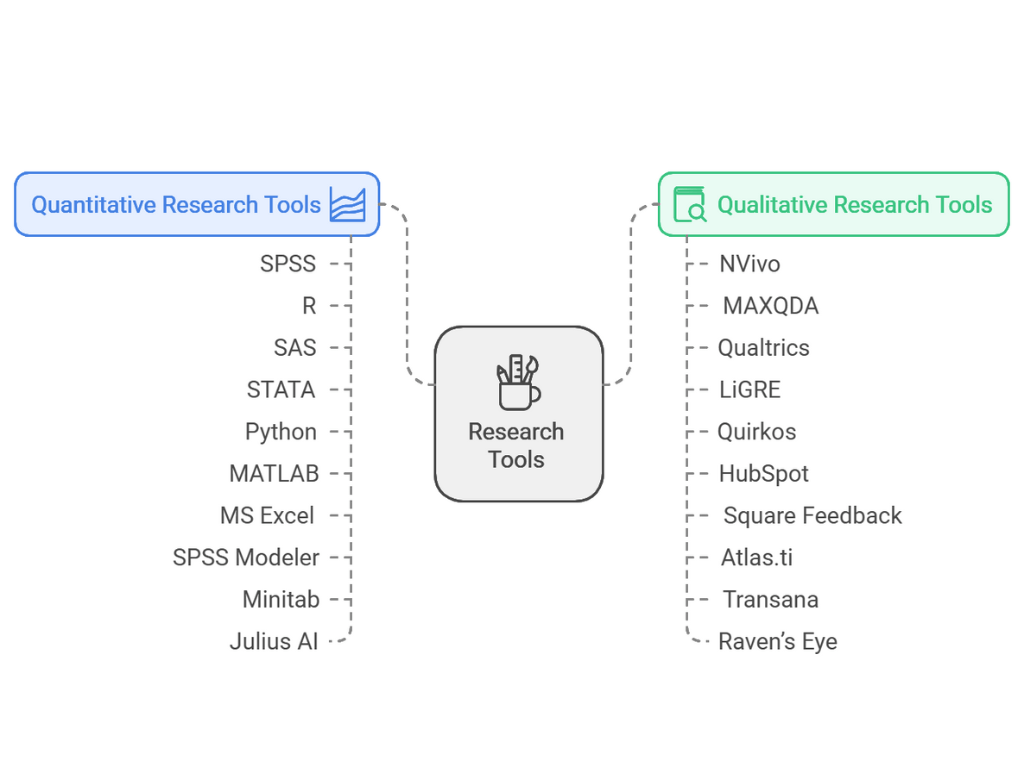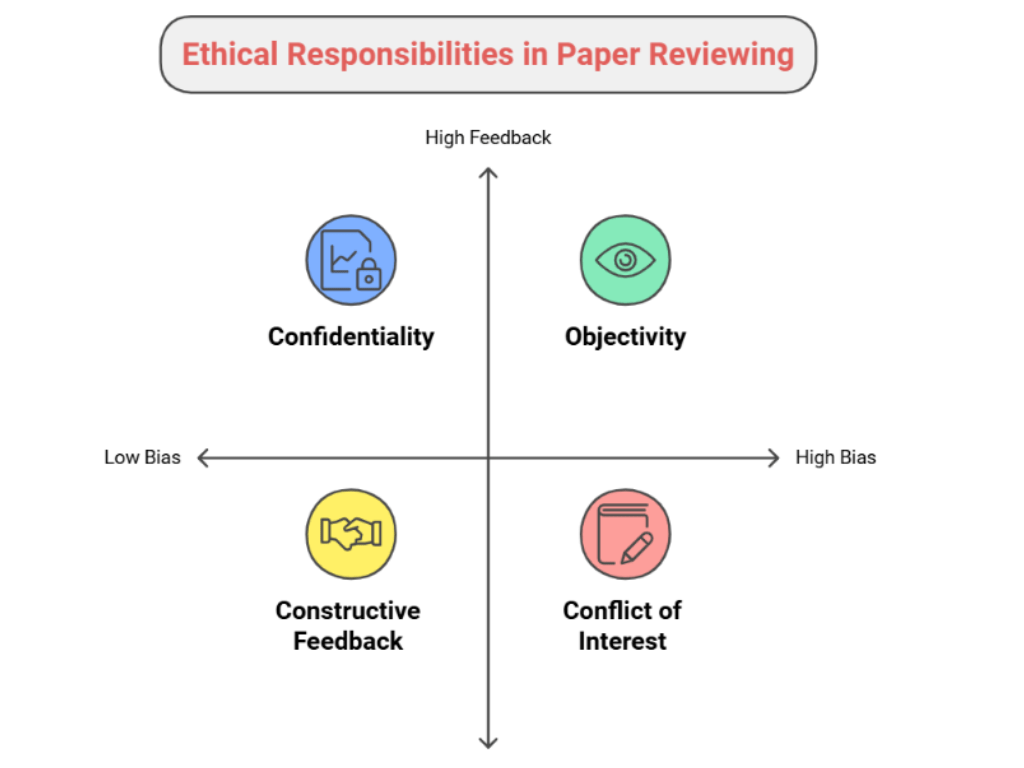
Pursuing a PhD is not just about producing a thesis. It’s a long journey of transformation—mentally, emotionally, and professionally. Every PhD student goes through different “zones” over time. Sometimes we stay in one zone for too long. Sometimes we move back and forth. The goal is to keep moving forward—from confusion to clarity, from hesitation to impact.
How to easily understand a complex research topic?
Meet Ponder – a tool that breaks down any research topic into a knowledge map.
How Ponder works?
- Go to www.ponder.ing and log in
- Enter your research topic or question
- Ponder will generate a knowledge map
- You can automatically attach research papers to the map
Ponder will 10x your ability to read and understand research papers.
Try it here – www.ponder.ing
In this newsletter, we’ll walk through the four zones of PhD students. As you read, reflect honestly: Which zone are you in now? And more importantly, how can you progress to the next?

1. Comfort Zone: Where Everything Feels Safe but Stagnant
At the beginning of your PhD, or during long research phases, it’s easy to get stuck here. This is the zone of familiarity.
You stick to what you know.
You read the same authors.
You revisit the same ideas.
You avoid discussions that challenge your thinking. You hesitate to share your thoughts in seminars. Why? Because in the comfort zone, things feel “safe.” But the truth is, this zone doesn’t lead to progress.
Signs you’re in the Comfort Zone:
- You avoid presenting your work to others.
- You rarely ask questions in research group meetings.
- You haven’t written or submitted anything in months.
- You’re not learning anything new—just repeating the old.
Remaining here too long can harm your PhD. It limits growth. It also creates a false sense of progress. You feel busy, but you’re not really moving forward.
How to leave it?
Start with small steps. Join a journal club. Present one slide of your idea. Read a paper outside your usual topic. Let your comfort stretch, one step at a time.
2. Fear Zone: Where Self-Doubt and Anxiety Take Over
This is one of the hardest zones. And yet, almost every PhD student passes through it.
You begin to doubt your research ideas.
You think: “Is this even worth publishing?”
You delay submitting papers—not because they’re not ready, but because you don’t feel ready.
You worry about feedback—especially from supervisors or reviewers. You imagine rejection even before submitting.
This zone is filled with “what ifs.” And they are powerful enough to freeze your progress.
Signs you’re in the Fear Zone:
- You constantly revise your paper but never submit.
- You compare yourself with peers and feel behind.
- You avoid talking about your work.
- You assume your work is not good enough.
This zone isn’t bad in itself. Fear means you care. But staying here for too long can lead to burnout or imposter syndrome.
How to move forward?
Start submitting, even if it’s not perfect. Remember: feedback improves papers. Every great researcher was once a beginner. Talk openly with your supervisor about your fears. You’ll be surprised how normal they are.
3. Learning Zone: Where Progress Feels Real
Once you push through fear, you enter the learning zone. Here, your PhD starts taking shape.
You begin to attend conferences—not just to listen but to present.
You start submitting more papers, even if some get rejected.
You actively learn new tools—whether it’s Python for data analysis or Zotero for reference management.
You initiate collaborations with other researchers—sometimes outside your discipline.
This is the most exciting part of the PhD journey. You’re growing every day.
You now realize that research is a process, not a perfection contest. You don’t fear feedback anymore—you seek it.
Signs you’re in the Learning Zone:
- You attend academic events regularly.
- You use new tools or methods in your work.
- You have a list of papers at different stages (idea, draft, revision, submission).
- You talk to researchers beyond your immediate circle.
You don’t need to be perfect to be in the learning zone. You just need to be consistent. The more you try, the more you grow.
Tip:
Track your progress. Every conference attended, every feedback received, every rejected paper—they are all steps forward.
4. Growth Zone: Where Research Becomes Impact
This is the zone every PhD student should aim for. Here, you don’t just learn. You contribute.
You start connecting your research to real-world problems. Whether it’s a policy issue, a social concern, or a technical challenge—you now see your work as part of a bigger picture.
You don’t just publish to finish your PhD. You aim for top journals. You aim to solve something meaningful.
You write grant applications to continue your work. You guide others—maybe supervise undergrads or mentor juniors.
You don’t fear feedback now—you use it as a tool to polish your ideas.
Signs you’re in the Growth Zone:
- Your research addresses real-world challenges.
- You have publications in respected journals.
- You collaborate with industry or international labs.
- You write or contribute to grant proposals.
- You’re invited to speak, teach, or review.
You may not live in this zone every day. But once you’ve been here, you know what’s possible.
How to stay here?
Keep your purpose clear. Don’t just chase outputs—focus on impact. Keep learning. Keep helping others. Let your research go beyond the thesis.
Final Thoughts: All Zones Are Natural
Every zone is part of the journey. You’re not a failure if you’re in the fear zone. You’re not lazy if you’re in the comfort zone. You’re human.
What matters is that you don’t stay stuck.
The goal is simple:
Move. Learn. Grow.
Progress is never a straight line. But if you reflect often, stay honest with yourself, and take small steps every week—you’ll move from comfort to growth in ways you never imagined.
So, pause for a moment today. Ask yourself:
Which zone am I in right now?
What can I do to move one step ahead this week?
The answer may just change your PhD journey for the better.
Don’t forget to read: Literature Review Steps




